Shows
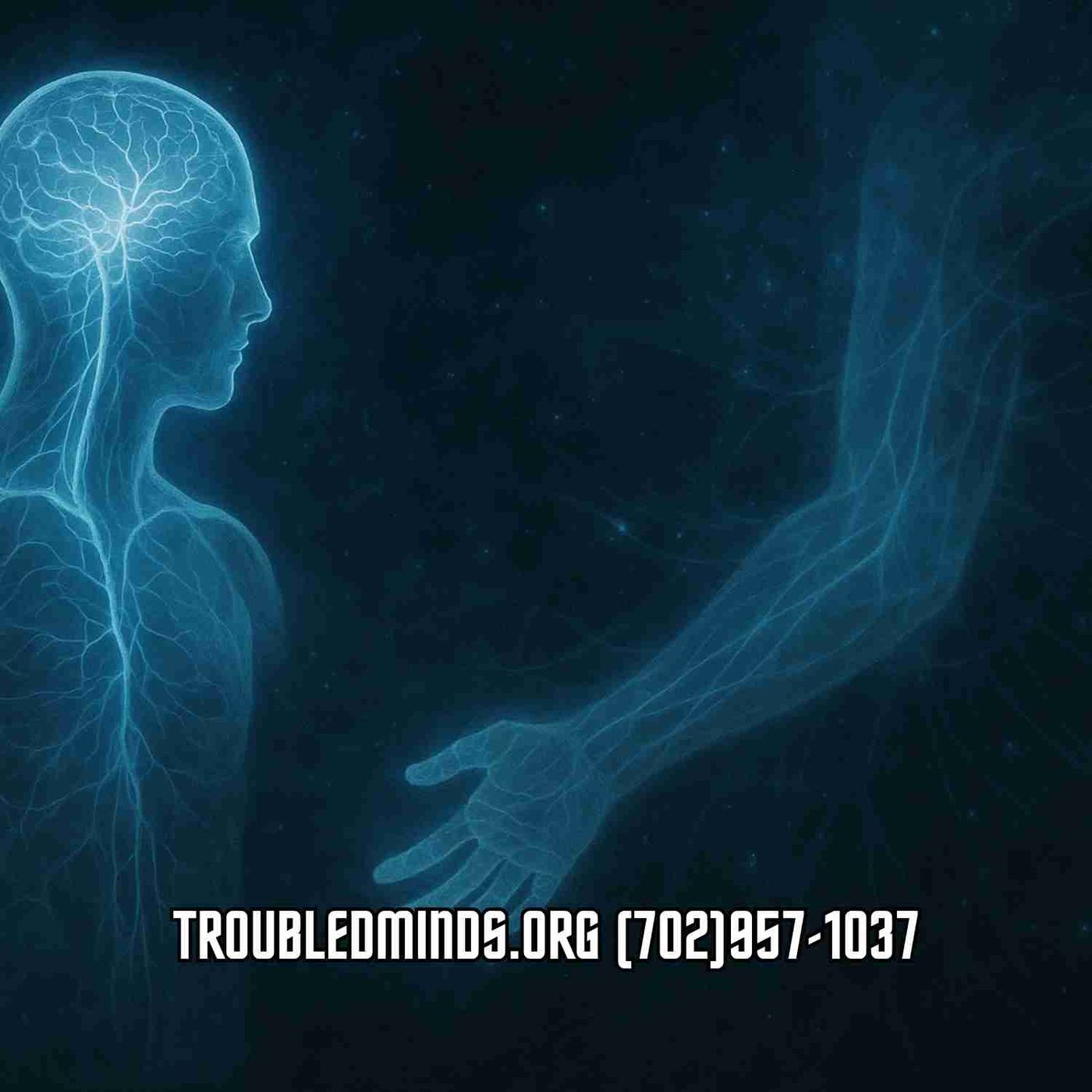
Troubled Minds RadioThe Ghost Body Network - Neuroscience Meets Ancient KnowledgeIf the brain preserves perfect maps of limbs that no longer exist, what else might be stored in the hidden architecture of consciousness? Could phantom sensations, morphic templates, and holographic body fields point to an unseen design where nothing of the self is ever truly lost? Or are we glimpsing evidence that awareness itself exists beyond the boundaries of matter?If you are having a mental health crisis and need immediate help, please go to https://troubledminds.org/help/ and call somebody right now. Reaching out for support is a sign of strength. LIVE ON Digital Radio! Http://bi...
2025-08-253h 01
Speaking of ScienceThe Puzzle of Precocious PubertyThe average age for the start of puberty has been dropping for decades. It's a global trend that could be signaling a public health threat to the physical and psychological development of younger, more vulnerable swaths of the population. Still, there's no clear culprit for early puberty; it's a complicated puzzle with many scattered pieces. At the National Institute of Environmental Health Sciences (NIEHS), pediatric neuroendocrinologist Dr. Natalie Shaw has been assembling the pieces together and recently found a new lead hiding in plain sight.
2025-04-0726 min
Speaking of ScienceDefying DengueThis year has seen a record number of dengue cases all over the world. It might not be a fluke, as climate change expands the areas where the mosquito that transmits the tropical disease can thrive. New measures for treatment and protection are necessary, but there's something peculiar about the way dengue infects the body that has stumped scientists for decades. That is, until now. Dr. Leah Katzelnick, Dr. Camila Odio and Dr. Stephen Whitehead from the National Institute of Allergy and Infectious Diseases (NIAID) are digging into dengue and coming up with ways to defy it.
2024-09-2323 min
Progress, Potential, and Possibilities Podcast / ShowDr. Francis Collins - Former Director, U.S. National Institutes Of Health (NIH); NIH Distinguished Investigator, Center for Precision Health Research, National Human Genome Research Institute - The Road To WisdomSend us a textDr. Francis S. Collins, M.D., Ph.D., ( https://www.francisscollins.com/ ) is the former Director of the U.S. National Institutes of Health (NIH), where as the longest serving director of NIH (spanning 12 years and three presidencies) he oversaw the work of the largest supporter of biomedical research in the world, from basic to clinical research. Dr. Collins continues to serve as NIH Distinguished Investigator, Center for Precision Health Research, at the National Human Genome Research Institute ( NHGRI - https://irp.nih.gov/pi/francis-collins ).Dr. Collins is...
2024-09-1655 min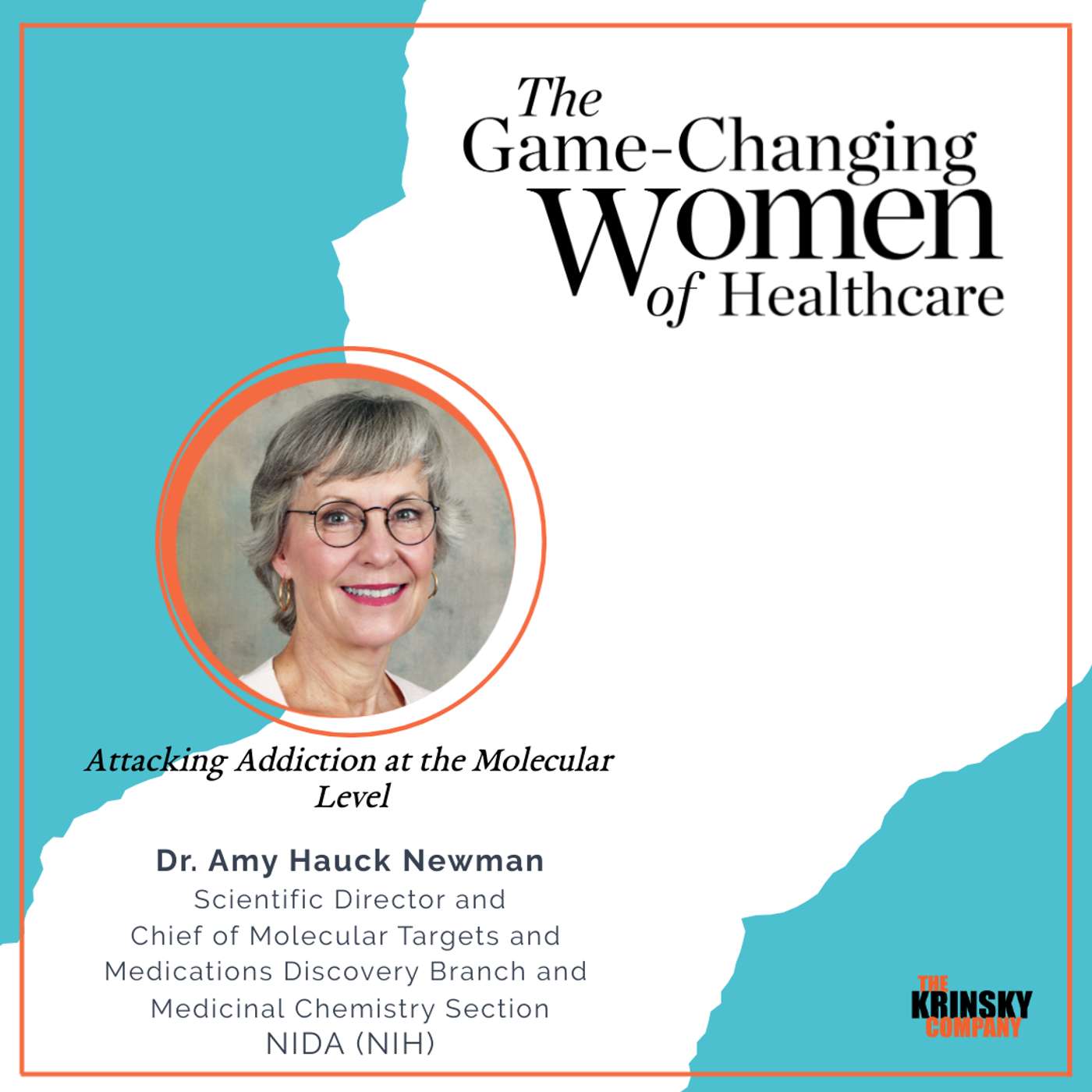
The Game-Changing Women of HealthcareAttacking Addiction at the Molecular Level: The Medicinal Chemistry of Dr. Amy Hauck NewmanMeg welcomes Dr. Amy Hauck Newman, the Scientific Director and the Chief of Molecular Targets and Medications Discovery Branch and Medicinal Chemistry Section of the National Institute on Drug Abuse’s Intramural Research Program also known as “NIDA” IRP. It is one of the 27 institutes and centers of the National Institutes of Health (NIH) and it is dedicated to understanding the causes, consequences and treatment of substance use disorders. On today’s show, Dr. Amy Hauck Newman discusses her work in developing novel medications to treat substance use disorders. She explains the lengthy process of drug d...
2024-08-2344 min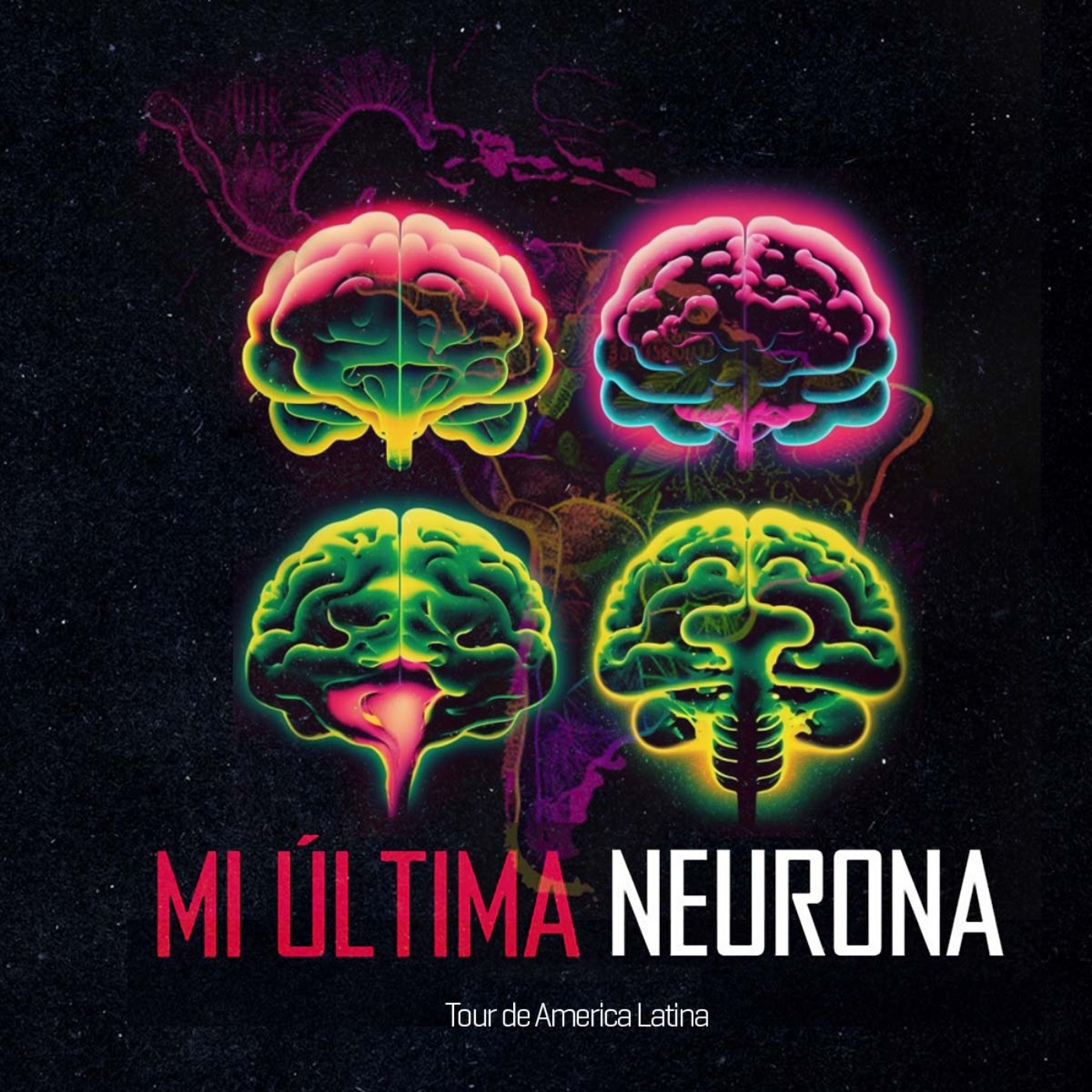
Mi Última NeuronaNeurociencia, Adicción y la Ciencia en México con el Dr. Eduardo Garza-VillarrealEn la conversación, se descubre cómo el cerebro adicto puede cambiar su enfoque de una sustancia a otra y la dificultad de encontrar tratamientos efectivos. También se abordan cuestiones éticas en la investigación en neurociencia y la importancia de educar al público sobre la ciencia. Además, se discuten los desafíos que enfrentan los investigadores al buscar financiamiento y la falta de capacitación en solicitudes de subvenciones.Este diálogo ofrece una visión interesante de la carrera e investigación del Dr. Eduardo Garza Villarreal en neurociencia, con énfasis en el uso de...
2024-08-121h 11
Inside Cancer CareersStaff Scientists: The Swiss Army Knife of NCIIn this episode of Inside Cancer Careers, we have Dr. Swati Choksi, a Staff Scientist at NCI Center for Cancer Research, and Dr. Christophe Marchand, Deputy Associate Director in the Division of Cancer Treatment and Diagnosis and former Staff Scientist, sharing insights about their roles in cancer research. They talk about the advantages and responsibilities of being a staff scientist, such as mentoring and training early career researchers and conducting their own experiments. They emphasize the importance of staff scientists in fostering collaborations within and outside the research team. Additionally, they delve into the transferability of skills, potential career...
2024-08-0155 min
Speaking of ScienceDevon Valera and Dr. Jacqueline Vo — Dismantling the Myth of Asian American, Native Hawaiian, and Other Pacific Islander Populations as a MonolithHistorical failings, like the Chinese Exclusion Act of 1882 that restricted immigration from China for 61 years, have cast a shadow of prejudice and discrimination over Asian American, Native Hawaiian, and Pacific Islander (AANHPI) populations. Its effects continue to loom heavy, often reducing these groups to a single racial-ethnic category and masking major differences that exist between them, even when it comes to their health. In this episode, Devon Valera, from the Office of NIH History, breaks down how history has shaped AANHPI experiences and perceptions, and Dr. Jacqueline Vo from the National Cancer Institute (NCI), explains why science is now...
2024-05-2832 min
Speaking of ScienceDr. Michael Ombrello — The Rare Case of Beverly GageBeverly Gage came to the NIH with a condition that had never been observed before. A mysterious genetic mutation that caused her chronic joint pain and inflammation led her to Dr. Michael Ombrello, an expert in rare inflammatory diseases at the National Institute of Arthritis and Musculoskeletal and Skin Diseases (NIAMS). Where their paths cross shows us the current challenges of diagnosing, treating, and living with a disorder that is new to science.
2024-04-0128 min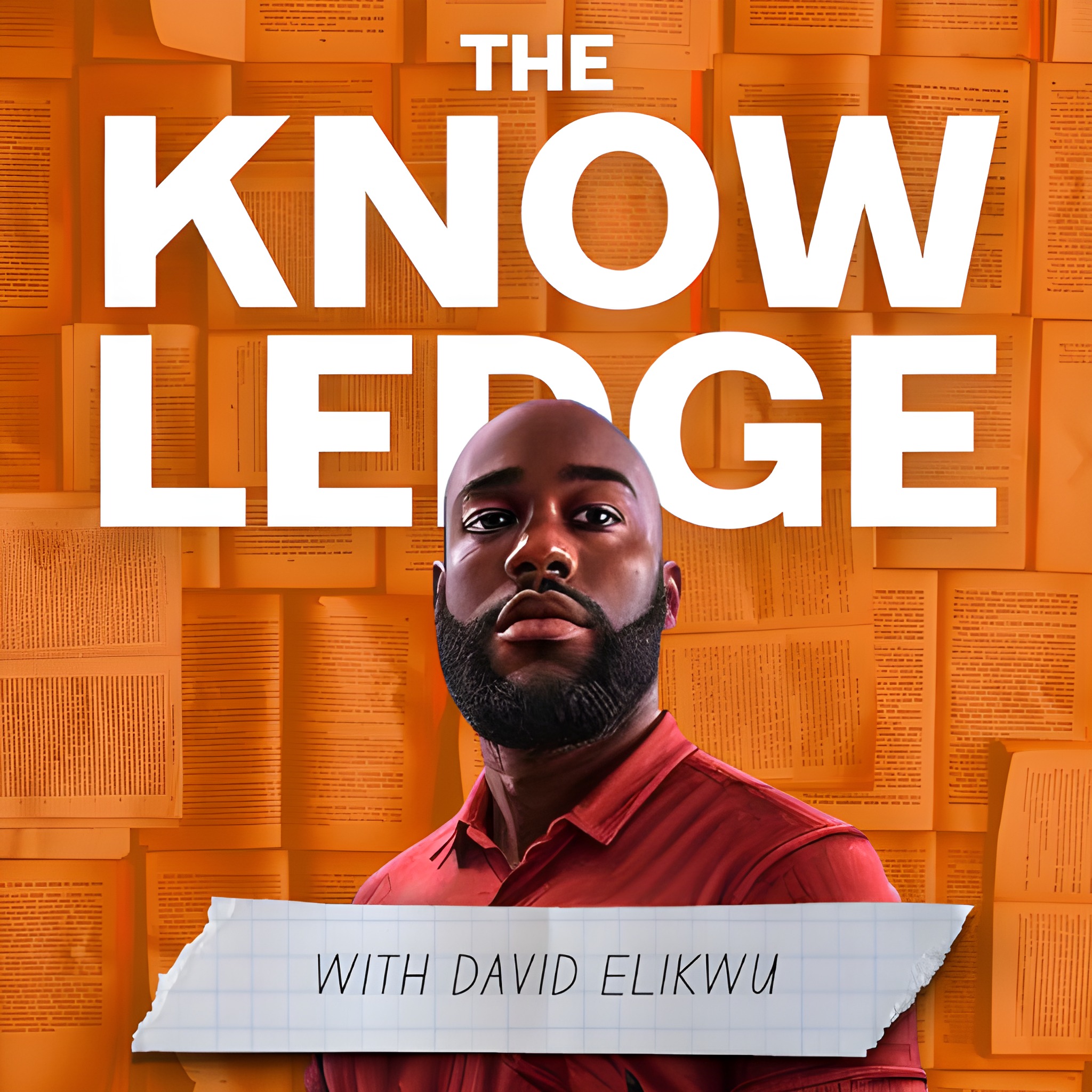
The Knowledge with David Elikwu88. The Economics of Elites with Garett JonesDavid speaks with Garett Jones, an Associate Professor of Economics at George Mason University, and the author of 3 books: Hive Mind, 10% Less Democracy, and The Culture Transplant.They talked about:📉 Good economic policies that people still hate👥 The power balance between the public and the elites, and why we secretly love them❓ Where do we go wrong in trusting the masses🏛️ What Garrett learned working in Congress🧠 Then we talked about intelligence - the balance between intelligence and behaviour🌍 The interplay between intelligence and culture📊 How understand...
2024-02-2945 min
Speaking of ScienceDr. Sadhana Jackson — Breaking Through the Blood-Brain BarrierThe blood-brain barrier keeps bad actors like toxins, viruses, and bacteria from entering the brain. But in the case of brain cancer when the danger is already inside, the blood-brain barrier can work against a person's health by shutting out the medications meant to eliminate the threat. Dr. Sadhana Jackson from the National Institute of Neurological Disorders and Stroke (NINDS) works to figure out ways to selectively get cancer treatments through the blood-brain barrier to treat patients with certain types of brain tumors known as gliomas. Learn more about Dr. Jackson work at https://irp.nih.gov...
2024-01-1825 min
Speaking of ScienceDr. Meredith Shiels — Health in NumbersEpidemiologists are the watchful guardians of public health. They collect and analyze data to track the status quo. When there are deviations, they crunch the numbers to understand who is getting sick, where, how, and why. Dr. Meredith Shiels is an epidemiologist and senior investigator at the National Cancer Institute (NCI) studying cancer mortality rates to discern what populations might be at higher risk, figure out ways to mitigate those risks, and evaluate whether those measures are working. Learn more about Dr. Shiels's research at https://irp.nih.gov/pi/meredith-shiels.
2023-10-2629 min
Speaking of ScienceDr. Veronica Alvarez and Dr. Bruno Averbeck — On the Pulse of Compulsive BehaviorsDespite negative consequences and the desire to stop, millions of people with compulsive behaviors can't break the self-destructive cycles that disrupt their daily lives. Dr. Veronica Alvarez and Dr. Bruno Averbeck from the National Institute of Mental Health run the Center on Compulsive Behaviors (CCB) which brings together NIH scientists to understand what drives these repetitive and often detrimental behaviors. The CCB strives to decipher the neural circuitry that leads to compulsive behaviors in hopes of improving treatments and designing new interventions. Learn more about the CCB at https://research.ninds.nih.gov/researchers/center-compulsive-behaviors-ccb.
2023-06-0632 min
Inside Cancer CareersThe Equation for Faculty Success & Cancer Genetics at NCI In this episode of Inside Cancer Careers, we hear from Avery August of Cornell University who shares his insights on how to support early career faculty and build a healthy research culture. We then hear from Dr. Jiyeon Choi of NCI’s Division of Cancer Epidemiology and Genetics about training and establishing her research team at NCI. Segment 1: Avery August, Ph.D. Belonging at Cornell PubMed: Productivity, prominence, and the effects of academic environment Cornell CANN Model Faculty Institutional Recruitment for Sustainable Transformation (FIRST) Cancer Biology Tr...
2023-05-1842 min
You, Me, and The GirlsStill No Male Birth ControlIn this episode we give the latest update on male birth control.
Real Talk About Feminism is sponsored by BetterHelp. Visit BetterHelp.com/rtafpod today to get 10% off your first month.
Please leave a rating and review for the show and share this episode with a friend!
Subscribe to our email newsletter here.
Follow us on Instagram @realtalkaboutfeminismpod
Follow us on TikTok @realtalkaboutfeminismpod
Subscribe to our YouTube channel here.
Sources:
https://www.imperial.ac.uk/mech...
2023-04-2331 min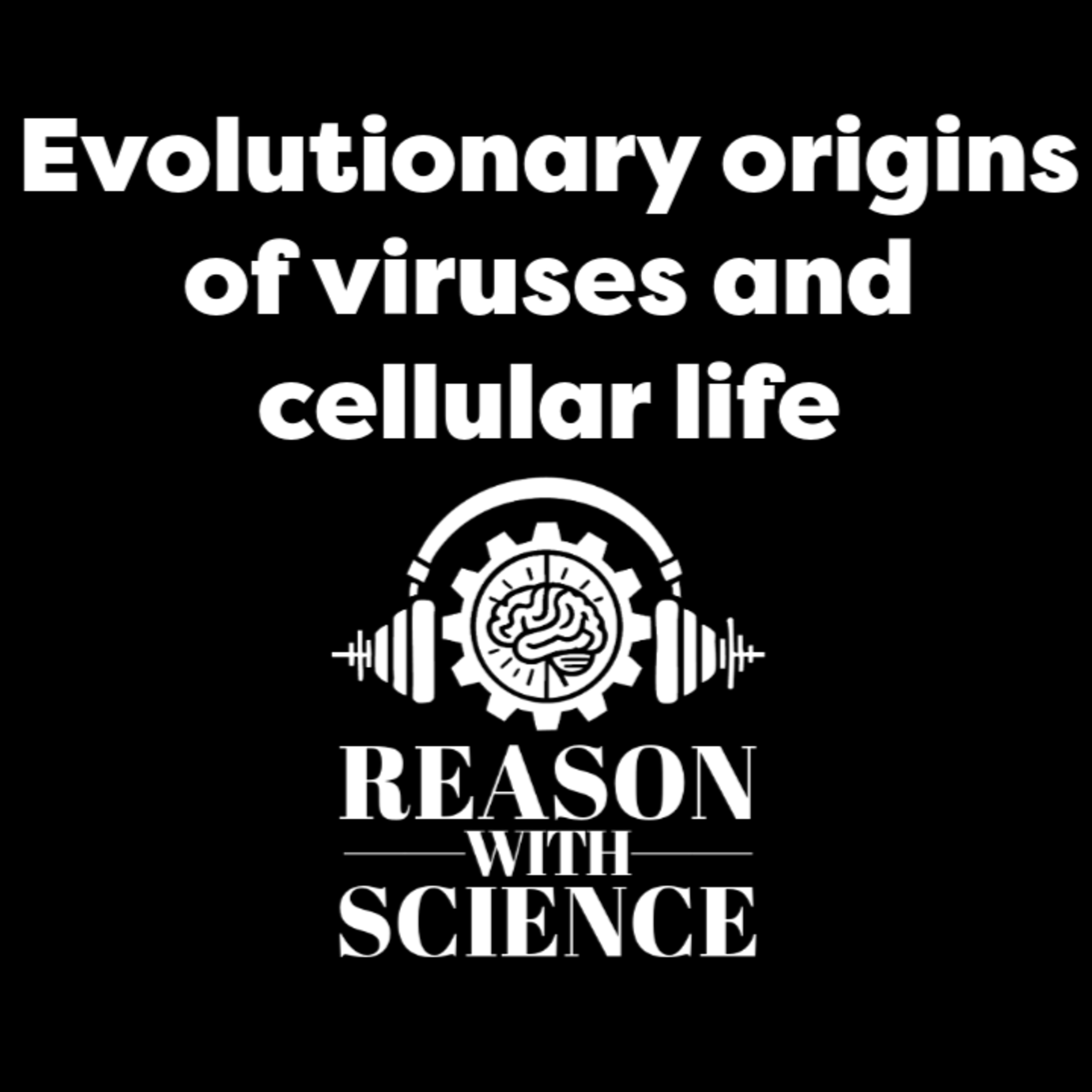
Reason with ScienceEvolutionary origins of viruses and cellular life with Eugene Koonin | Reason with Science | GenomicsThis episode is with Eugene Koonin.
He is a highly respected computational biologist who has made significant contributions to the fields of evolutionary biology, genomics, and bioinformatics. Eugene is a distinguished investigator at the National Center for Biotechnology Information (NCBI). His research interests include the evolution of viruses and the development of new computational methods for analyzing large-scale genomic data. Here we talk about origins and evolution of viruses, major transitions in evolution, diversity of viruses, and tools to study viruses.
Guest info:
Website: https://irp.nih.gov/pi/eugene-koonin...
2023-03-191h 32
Brain Ponderings podcast with Dr. Mark MattsonPondering Methamphetamine's Effects on the Brain with Jean Lud CadetJean Lud Cadet is a neurologist and neuroscientist at the National Institute on Drug Abuse whose research is revealing why some people become addicted to methamphetamine while others do not, and how methamphetamine can damage and kill neurons resulting in long-lasting or even permanent impairments of learning and memory. His recent findings suggest that methamphetamine can cause enduring alterations in gene expression in neurons by mechanisms involving epigenetic mechanisms. This research is providing insight into new approaches for identifying people at high risk for addiction and treating those who are already addicted. Links: Jea...
2023-03-021h 12
Speaking of ScienceDr. John Hanover — The Bittersweet Study of GlycobiologySugars, also referred to as carbohydrates, aren't just substances we add to make coffee taste less bitter or food sweeter; they are an entire class of molecules necessary for life. The study of these carbohydrates is called glycobiology. Dr. John Hanover is a glycobiologist and the chief of the laboratory of cell and molecular biology at the National Institute of Diabetes and Digestive and Kidney Diseases (NIDDK). His work is advancing scientists' understanding of the sugar structures responsible for rare diseases and genetic transgenerational inheritance.
2023-02-2823 min
Speaking of ScienceDr. Sharon Milgram — Making the Most of the Trainee ExperienceNone of the groundbreaking research taking place in the IRP would be possible with the hard work and dedication of trainees. While they work to support the NIH's mission to turn discovery into health, the Office of Intramural Training and Education (OITE) works to supports trainees in their professional pursuits. Dr. Sharon Milgram is the director of OITE and a strong proponent that good training begets good science. In this episode, she talks about the many ways OITE supports students and fellows so that they can achieve their best work and make the most of their experience in the...
2022-12-1230 min
Speaking of ScienceDr. Steve Holland — Sussing Out Susceptibility to SicknessFor Dr. Steve Holland, the mystery of why some people are more prone to disease is as much a curiosity as it is a calling. Dr. Holland is the scientific director and chief of the immunopathogenesis section at the National Institute of Allergy and Infectious Diseases (NIAID) where he searches for signs to explain differences in susceptibility to certain infections. In this episode, he discusses how the immune system can thwart its own defenses by producing antibodies that block the chemical signals it needs to put up a fight.
2022-10-1828 min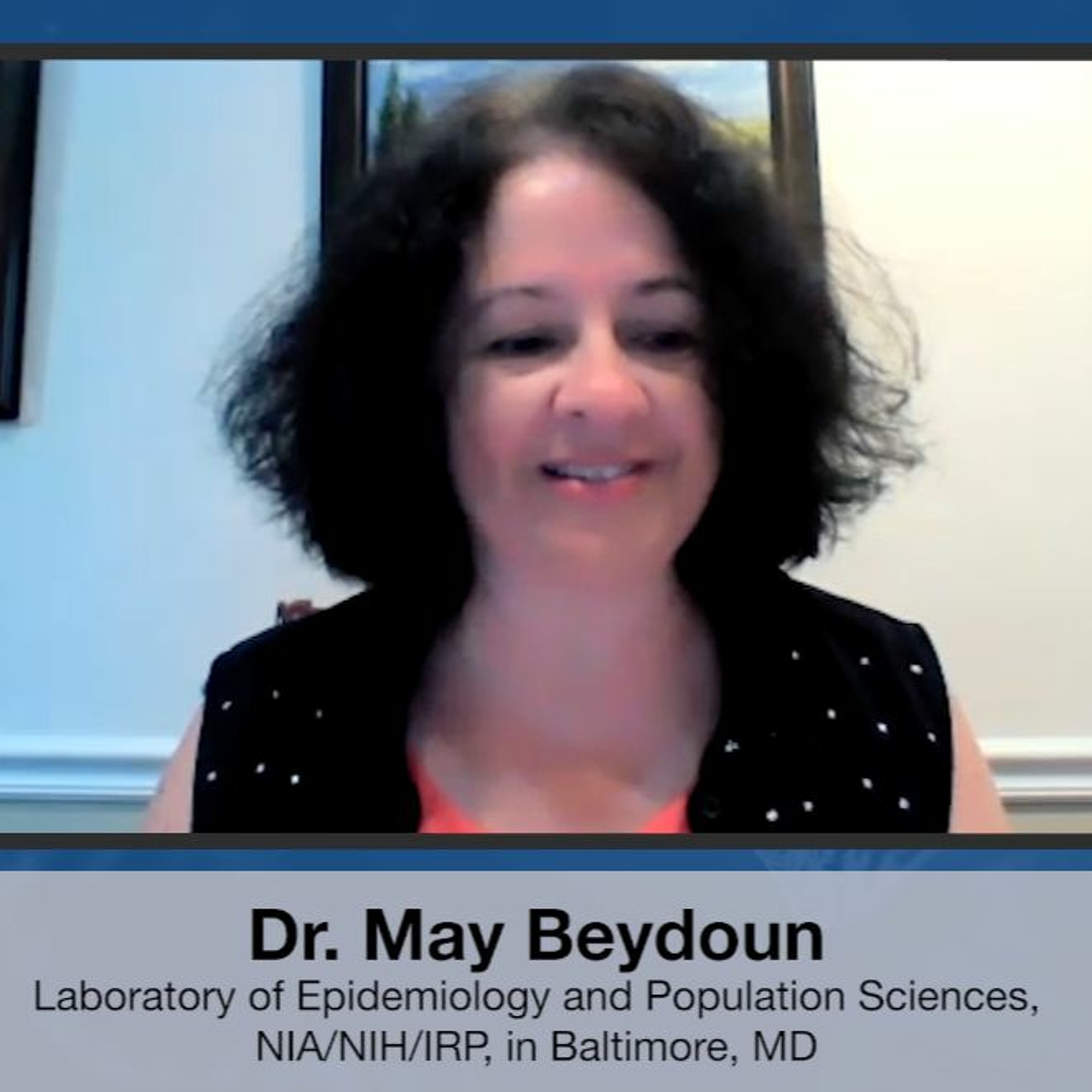
Aging-USBehind the Study: Epigenetic Clocks Association with Perceived Discrimination, Depressive SymptomsDr. May Beydoun from the Laboratory of Epidemiology and Population Sciences, NIA/NIH/IRP, in Baltimore, MD, discusses a research paper she co-authored that was published by Aging (Aging-US) as the cover for Volume 14, Issue 13, entitled, “Epigenetic clocks and their association with trajectories in perceived discrimination and depressive symptoms among US middle-aged and older adults.”
DOI - https://doi.org/10.18632/aging.204150
Corresponding author - May A. Beydoun - baydounm@mail.nih.gov
Video version - https://www.youtube.com/watch?v=gkiDhjTL0YY
Abstract
Background: Perceived discrimination may be associated with accelerated aging later in life, with depressive symptoms acting as p...
2022-09-2114 min
Speaking of ScienceDr. Hari Shroff — The Science and Play of Super Resolution ImagingNASA recently unveiled the first images taken by the James Webb Telescope. But the distant cosmos aren't the only ones coming into focus. While astronomers point their instruments up to peer into the stars, microscopists like Dr. Hari Shroff are focusing their gaze down to capture life on Earth. As chief of the Section on High Resolution Optical Imaging at the National Institute of Biomedical Imaging and Bioengineering (NIBIB), Dr. Shroff engineers new microscopes to render the invisibly small in new and improved resolution.
2022-07-2520 min
Speaking of ScienceDr. Joyce Chung — Gathering Helping Hands to Grasp Mental HealthFinding treatments for mental health conditions doesn't just deal with people who live with them. Healthy volunteers play a critical part in the science of understanding our brains and behavior. But what qualifies as "healthy" can vary across labs and skew how scientists interpret study results. Dr. Joyce Chung, the Deputy Clinical Director at the National Institute of Mental Health (NIMH), is changing that. She is creating a pool of vetted volunteers to bolster the integrity, efficiency, and safety of mental health research.
2022-05-0318 min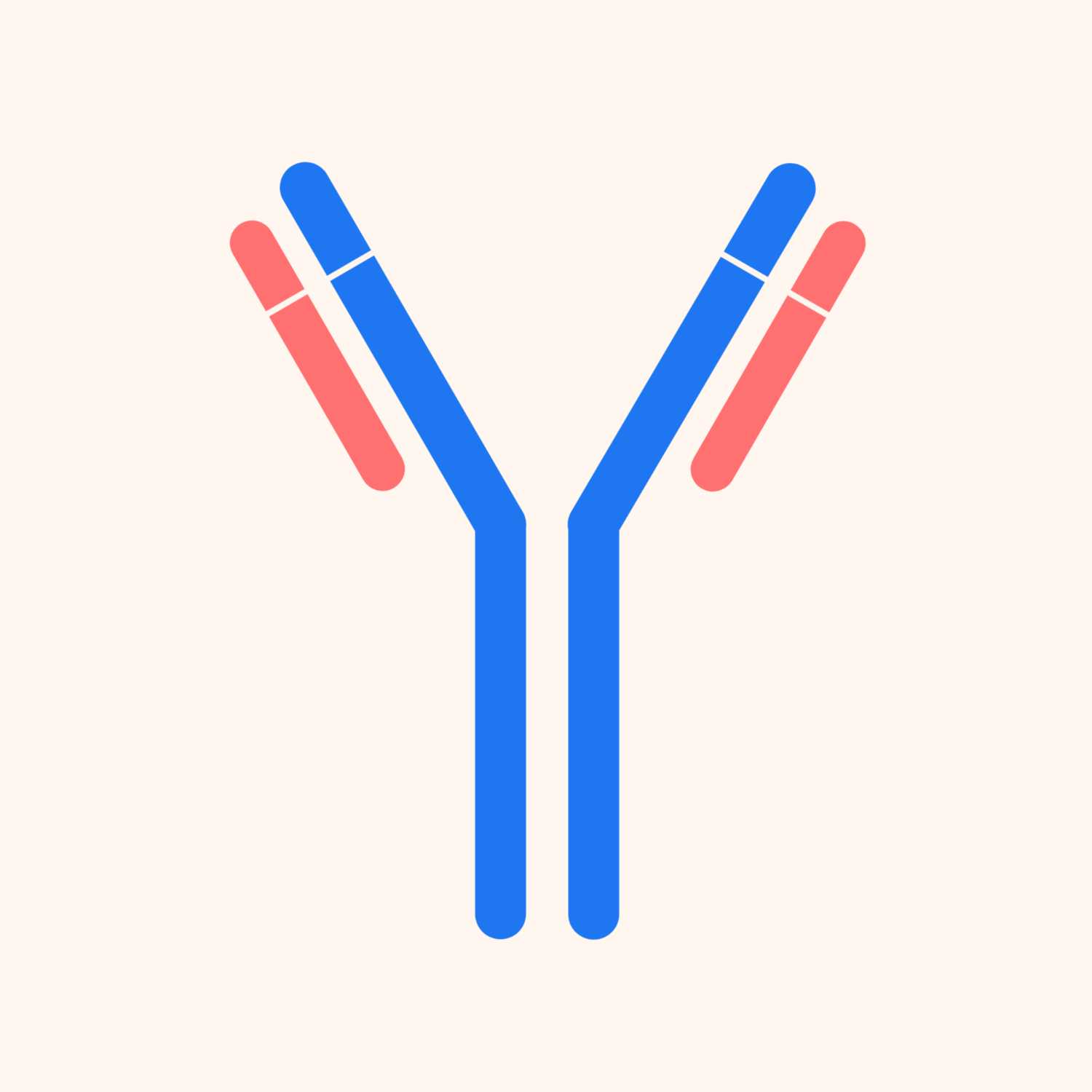
Zhens'Malaria Vaccines, Public Health, and Fencing Why are malaria vaccines so hard to make?Lawrence Wang is an MD-DPhil candidate in vaccine research at Oxford, a medical school student at UC San Diego, and a NIH Oxford-Cambridge Scholar at National Institutes of Health (NIH) in the Intramural Research Program (IRP). In this 1hr+ session, Lawrence and I discuss everything from malaria vaccines to cytokine storms to benefits of doing an MD-PhD. He has written many articles on med school insider, has a public health paper out on the private sector drug shops and anti-malarials in Uganda, and fences foil on the Oxford blues...
2022-02-201h 40
Speaking of ScienceDr. Lauren Porter — Molecular "Transformers:" Switching Form and FunctionScience is receptive to new information that can refine the theories we use to make sense of the world. Such is the case with Dr. Lauren Porter, a Stadtman investigator at the National Library of Medicine who is helping redefine the way we understand how proteins behave. She is looking at a new class of proteins that can change their structure and function much like the famous Transformer robots that morph into different machines. Understanding how these proteins switch their shape could help scientists understand the molecular basis of certain diseases like cancer and Alzheimer's.
2022-02-1523 min
Speaking of ScienceDrs. Elaine Ostrander and Heidi Parker — Unleashing the Dog GenomeCenturies of selective breeding have given rise to a staggering variety of dog breeds, each with its own traits and behaviors. But shallow gene pools have also put some breeds at higher risk for disease. Dr. Elaine Ostrander runs the Dog Genome Project at the National Human Genome Research Institute. Her team includes Dr. Heidi Parker. Together, they are digging for clues to understand how genes code for dogs' diversity and disease. Clues that might also inform the health of their two-legged caregivers.
2021-12-2831 min
Speaking of ScienceDr. Matthew Memoli — A Better Shot Against the FluThe annual flu vaccine is the best way to prevent yourself and others from getting sick. But sometimes the antigens the vaccine trains your body to fight are not similar enough to the strains of influenza circulating that year. This mismatch allows viruses to fly under the radar and spread undetected. It's a problem scientists hope to solve with a universal flu vaccine. Dr. Matthew Memoli is an influenza expert at the National Institute of Allergy and Infectious Diseases (NIAID). He is preparing to test a new vaccine candidate that could offer protection from more flu strains and for...
2021-11-0133 min
Eat Real To Heal PodcastEp. 87 Reversing Diabetes with Dr. Brendan Byrne, MDDr. Byrne’s deep passion is to use the latest science to help people change their behaviors, reverse their chronic illnesses and optimize their health. He believes that we all need our own wellness practice; something that’s fun and energizes us so we can achieve our peak potential.Brendan has been a physician and digital pioneer for the past 25 years. Trained at Yale and McGill, he has had a parallel career as an entrepreneur. From his original practice in New Westminster, Brendan created electronic medical record software and built a business that eventually was acquired by TELUS...
2021-09-291h 50
Speaking of ScienceDr. Bevil Conway — Coloring Inside the MindsThere is more to color than meets the eye. According to Dr. Bevil Conway, how we perceive color can inform how our brains receive, interpret, and generate knowledge about the world. Dr. Conway is a visual artist and a neuroscientist at the National Eye Institute. He is working to decode the neural basis of color. In a recent study, his lab mapped how different colors can stimulate different patterns of brain activity.
2021-09-1428 min
Primordia Podcast: Your Source for StrangePsychic Experiments: The Government & ConsciousnessDive into this week's episode as we discuss psychic experiments performed on behalf of US intelligence groups. We'll swim through the infamous STARGATE project, an astronaut's ESP experiments in space and a remote viewing session of the Red Planet!
Unearthing Paranormalcy: https://www.unpnormalcy.com/
Reading Recommendations:
Beyond UFOs: The Science of Consciousness & Contact with Non Human Intelligence|Paperback - Rudy Schild PH.D., Jon Klimo PH.D., Reinerio Hernandez J.D.
The Dual Soul Connection: The Alien Agenda for Human Advancement (Paperback) - Suzy Hansen, Dr. Rudy Schild
...
2021-09-0626 min
Speaking of ScienceDrs. Natasha Caplen and Richard Maraia — What's Next in the RNAge?The success of mRNA vaccines against the coronavirus that causes COVID-19, has brought RNA biology into the limelight. Now, with the world's attention, what's next for this biomedical rising star? NIH scientists, Dr. Richard Maraia and Dr. Natasha Caplen, have long recognized the potential of RNA in improving human health. In this episode, they discuss the prospects of RNA biology and how their work could inform the future of RNA as an innovative class of medicine.
2021-08-0222 min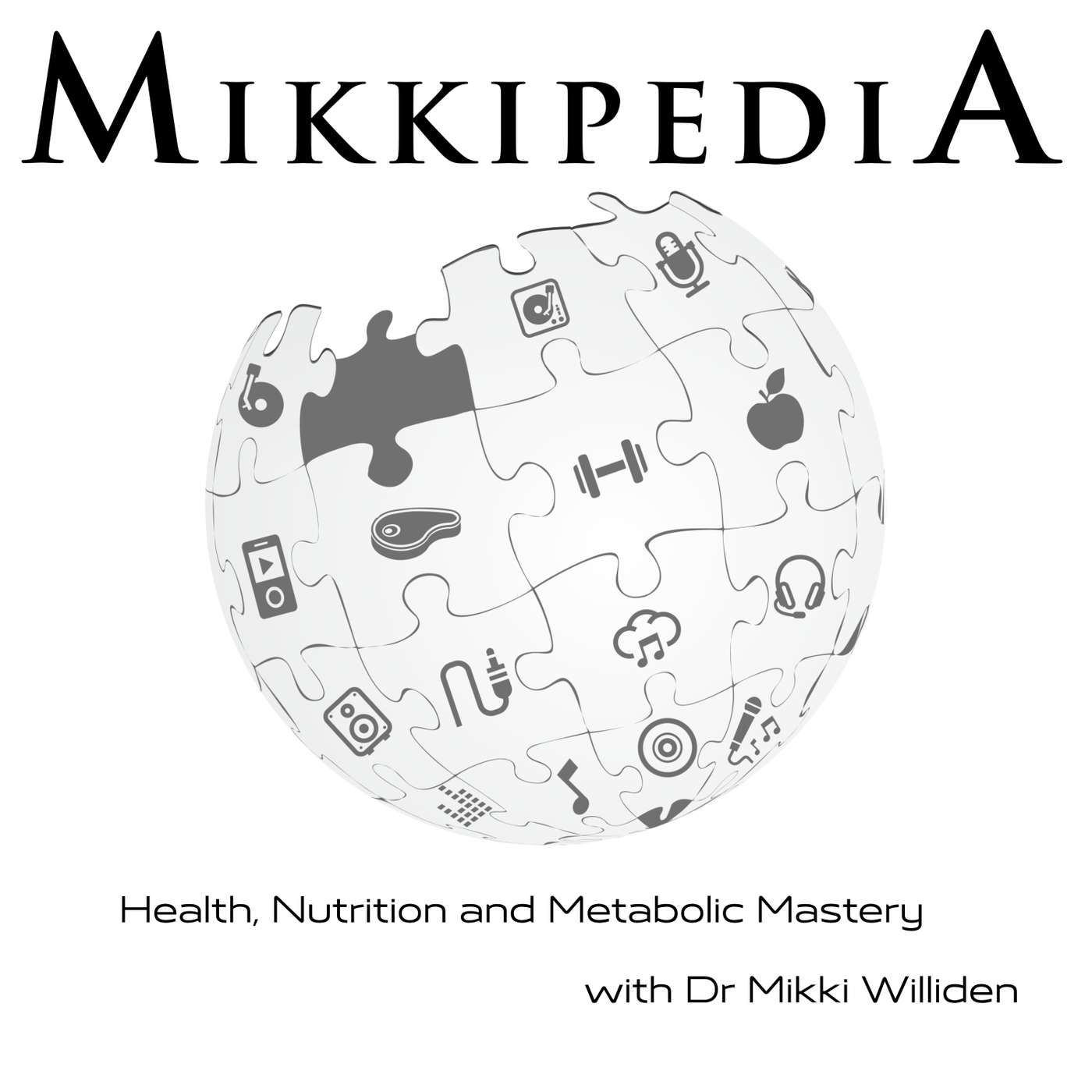
MikkipediaMark Mattson Ph.D.Dr Mark Mattson is now retired, but was a professor of Neuroscience at Johns Hopkins University. He’s one of the foremost researchers in the area of cellular and molecular mechanisms underlying neurodegenerative disorders such as Alzheimer’s and Parkinson’s. Previously, he was chief of the Laboratory of Neurosciences at the National Institute on Aging Intramural Research Program (IRP) at the National Institutes of Health since 2000. Dr Mattson spent his career investigating cognitive function and tools used to help delay the progression of cognitive decline.Mark's research was the catalyst for the now popular 5:2 diet pr...
2021-06-2254 min
Christian SouljahBlack Love Pt 5: Black Parenting#25 Do parents parent differently across races? Are there considerations for Black parents that other parents don't have? What's with whuppins? The Souljah's discuss parenting styles, differences in parenting between races, and cross-racial adoption. Plus, Andres can't seem to stop laughing!*** Correction *** In the episode, Andres mentioned John Legend was the first African American to get EGOT status. That was incorrect. He is the first African American male to get the honors. Whoopi Goldberg was the first African American to win all four awards. She won two of those awards in the same year.
2021-06-171h 40
Speaking of ScienceDr. Anna Nápoles — A New Dawn for Minority HealthWhen the COVID-19 pandemic struck, racial and ethnic minority groups were disproportionately hit. The health inequities pulled at the seams of a system that was already frayed. Dr. Anna Nápoles works to close gaps in healthcare as the first Latina scientific director of the National Institute on Minority Health and Health Disparities (NIMHD). She is reducing the types of hurdles that once hindered her parents so that all populations can live long, healthy, and productive lives. Learn more about Dr. Nápoles's research at https://irp.nih.gov/pi/anna-napoles.
2021-06-0722 min
The Testing Psychologist Podcast209. Conceptualizing & Treating Irritable Kids w/ Dr. Melissa BrotmanWould you rather read the transcript? Click here.
Irritability in kids has been a personal and professional interest for nearly two decades. I went to grad school at a time when pediatric bipolar disorder was the “hot” diagnosis, only to find out several years later that the irritability so often seen as representative of bipolar in kids did not actually predict a bipolar diagnosis during adulthood. The advent of disruptive mood dysregulation disorder advanced our knowledge quite a bit, yet these irritable kids continue to fall in a gray area as far as diagnosis and treatment. Dr. Meli...
2021-05-101h 04
R is for Rare13. Abetalipoproteinemia ft. Noah VictoriaThis week's interview is with Noah Victoria, a 24-year-old rare disease patient who is in the process of self-publishing her first poetry book! Noah has abetalipoproteinemia, (also "abeta" or "ABL") is a rare, genetic condition where your body's ability to absorb fat and fat-soluble vitamins is impaired. We talk about therapy and the stigma around getting help (fitting since May is Mental Health Awareness Month), how our Catholic faith has shaped our rare disease journeys, what we wish people knew about rare diseases, and much much more!
Be sure to subscribe to R is for Rare on Apple Podcasts, Spotify...
2021-05-041h 58
Speaking of ScienceDr. Diana Bianchi — Caring for Two: The Mom-Baby UnitPregnancy is by no means necessary for motherhood, but it is necessary for life. And it's no picnic. A pregnant person can experience complications like anemia, UTIs, hypertension, diabetes, and exhaustion. Maintaining maternal health during pregnancy can be challenging, but it is integral for the health of the fetus. Dr. Diana Bianchi is a physician-scientist and the director of the National Institute of Child Health and Human Development (NICHD), where she works to improve care for the mommy-baby unit. Learn more about her research at https://irp.nih.gov/pi/diana-bianchi.
2021-05-0430 min
Speaking of ScienceDr. Louis Staudt — The ABCs of B Cell LymphomasSmall errors can quickly escalate to have large repercussions. When it comes to cancer, molecular changes to DNA can trigger chain reactions that cause cells to go awry and spread uncontrollably. Dr. Louis Staudt works to identify such changes, known as genetic mutations, and find ways to stop them from snowballing into a deadly disease. In this episode, Dr. Staudt recounts the story of how he differentiated subtypes of lymphomas to develop a treatment for patients as an early success of precision medicine. Dr. Staudt is a principle investigator and the director of the Center for Cancer...
2021-04-0828 min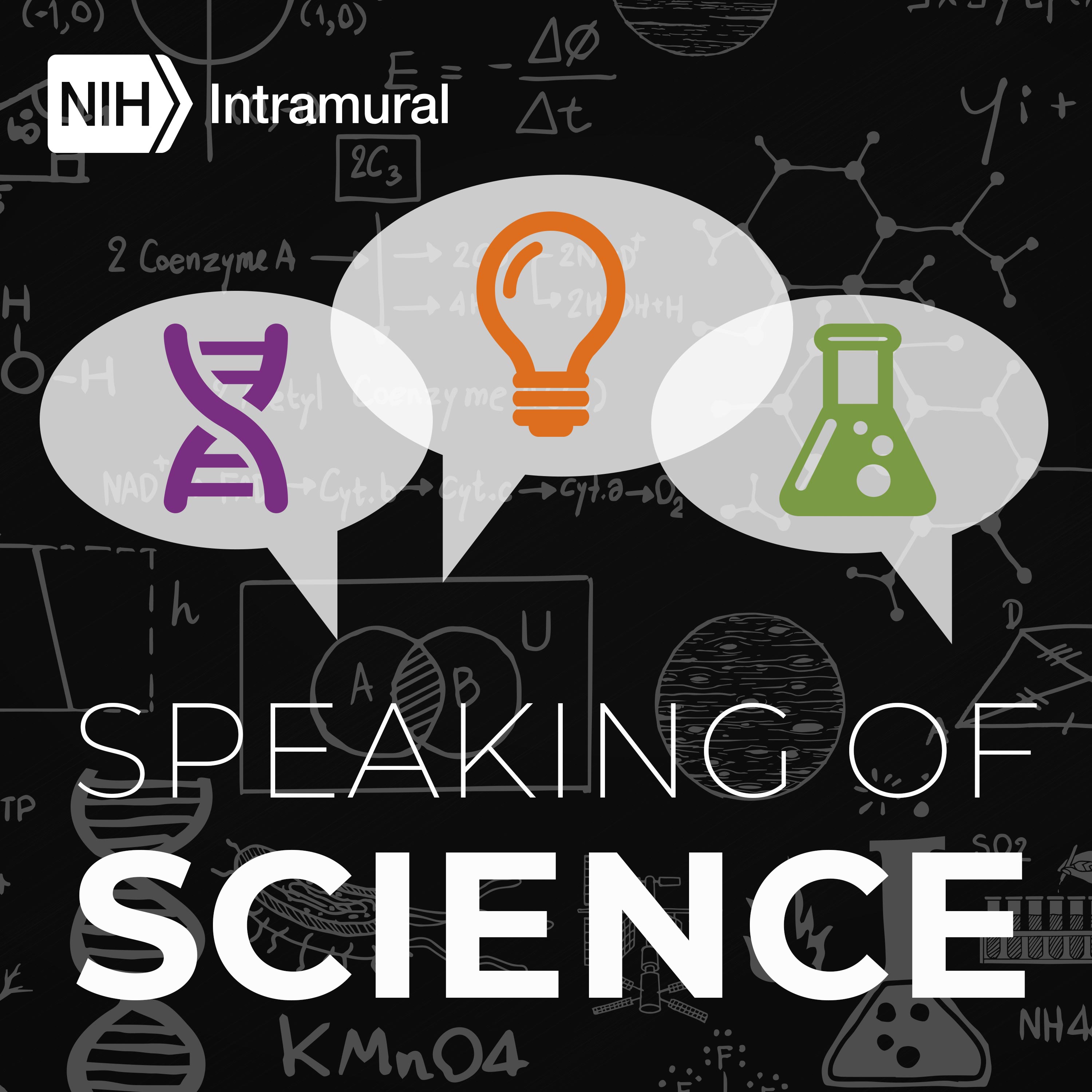
Speaking of ScienceDr. Louis Staudt — The ABCs of B Cell LymphomasSmall errors can quickly escalate to have large repercussions. When it comes to cancer, molecular changes to DNA can trigger chain reactions that cause cells to go awry and spread uncontrollably. Dr. Louis Staudt works to identify such changes, known as genetic mutations, and find ways to stop them from snowballing into a deadly disease. In this episode, Dr. Staudt recounts the story of how he differentiated subtypes of lymphomas to develop a treatment for patients as an early success of precision medicine. Dr. Staudt is a principle investigator and the director of the Center for Cancer...
2021-03-3128 min
Speaking of ScienceDr. Kevin Hall — Dueling DietsNutrition is a contentious topic. It's hard to tell fact from fiction. One day eggs are good for you, the next they have too much fat. But what about the keto craze? Doesn't it say you should eat mostly fats? Fortunately, there are scientist like Dr. Kevin Hall who are working to debunk the myths and give us the real skinny on how the foods we eat affect our health. Most recently, Dr. Hall published a study that put two well-known diets head-to-head to see which led people to consume more calories.
2021-03-0233 min
Speaking of ScienceDr. Carlos Zarate — Ketamine to Combat DepressionKetamine is often thought of as an illicit party drug—something people take for a momentary high. But it wasn't designed to be a mind-altering drug. Originally, ketamine was developed as anesthetic to relieve temporary pain. And now it seems the drug can provide solace not just from physical distress. At the NIH, Dr. Carlos Zarate is investigating how ketamine can rapidly reduce depressive symptoms in people with treatment-resistant depression or bipolar depression, for whom other options have not helped.
2021-01-0830 min
Videnskabeligt Udfordret#001: Miltbrand er pænt effektivtMennesket er hundredemetermestre i at slå hinanden ihjel på ubehagelige måder. Ikke bare kan vi stirre hinanden dybt i øjnene mens vi tæver løs med en æselkæbe, vi kan også sende ballistiske missiler afsted mod fremmede lande fyldt med miltbrand. Eller super-ultra-mega-dødspest!Hør med når vi fortæller om fortidens, nutidens og fremtidens biologiske våben og finder ud af om corona er menneskeskabt og hvordan vi vil myrde hinanden i fremtiden. Med virusser!Skulle du have lyst til at støtte Videnskabeligt Udfordret, så kan du gøre det ovre på vores...
2021-01-051h 30
REDRUM true crimeEpisode Nineteen, AUM cult
The liquid seeped over the floor and caused immediate distress as people began to cough and choke. More and more people were struggling to breath and violently clutching at their throats and chests. People quickly started to fall forward and slump onto one another, becoming unconscious. Even if passengers managed to make it off of the train carriage, the hallways and entrances began to fill with the toxin, and commuters fell about, gasping for air, blood gushing from their noses and mouths.
Patreon - https://www.patreon.com/redrumtruecrime?fan_landing=true
...
2020-12-0737 min
REDRUM true crimeEpisode Nineteen, AUM cultThe liquid seeped over the floor and caused immediate distress as people began to cough and choke. More and more people were struggling to breath and violently clutching at their throats and chests. People quickly started to fall forward and slump onto one another, becoming unconscious. Even if passengers managed to make it off of the train carriage, the hallways and entrances began to fill with the toxin, and commuters fell about, gasping for air, blood gushing from their noses and mouths.
Patreon - https://www.patreon.com/redrumtruecrime?fan_landing=true
...
2020-12-0736 min
Speaking of ScienceDrs. Heidi Kong and Ian Myles — Derm Germs: The Human Skin MicrobiomeIn nature, strategic alliances can mean the difference between life and death. For humans, such vital partnerships exist between us and the trillions of microbes we unwittingly host in and on our bodies - together called the microbiome. Dr. Heidi Kong uses genomics to uncover the microbe-host interactions taking place all over our skin. Building on her work and a growing understanding of the skin microbiome, Dr. Ian Myles has developed a bacterial spray that improves eczema, an inflammatory skin disease.
2020-10-0723 min
Speaking of ScienceDr. Peter Bandettini — Mr. MRIDr. Peter Bandettini spends a lot of time peering into people's heads. Not because he is clairvoyant, but because he is a biophysicist. Using functional MRI (fMRI), a revolutionary neuroimaging technique he helped pioneer in the '90s, Dr. Bandettini delves into the mysteries of the human brain. He is working to advance fMRI technology to parse out more information about the neural connections that are constantly and spontaneously active even when we think our minds are blank. Dr. Bandettini is a principal investigator at the National Institute of Mental Health (NIMH) and the director of the...
2020-09-0131 min
Speaking of ScienceDr. Hannah Valantine — At the Heart of DiversityTime and again, diversity and inclusion initiatives have proven to boost productivity and overall well-being in the workplace. But despite countless studies and although there have been significant strides in recent history, the struggle to ensure equal opportunity persists. At the NIH, the Scientific Workforce Diversity (SWD) Office is expanding recruitment and retention with Dr. Hannah Valantine as its first chief officer. She emphasizes how proper resources, mentorship, and community are essential for progress in the biomedical field. Dr. Valantine is also a cardiologist and Senior Investigator of the Laboratory of Transplantation Genomics in the National Heart...
2020-07-3135 min
Speaking of ScienceDrs. Richard Childs and Matthew Hall — Remdesivir Therapy for COVID-19In this episode, Dr. Richard Childs, a senior investigator and Clinical Director of the National Heart, Lung, and Blood Institute (NHLBI), recounts his experience using the antiviral remdesivir to treat patients with COVID-19 in one of the early hot zones of the pandemic. He led a team sent to care for passengers on the Diamond Princess cruise ship that was held in quarantine in Yokohama, Japan at the start of the outbreak. Since then, remdesivir has continued to gain traction as a possible standard of care. Dr. Matthew Hall, biology group leader at the National Center for Advancing Translational...
2020-06-2222 min
Speaking of ScienceDr. Kizzmekia Corbett — The Novel Coronavirus VaccinePerhaps now more than ever, it is undeniable how integral vaccines have become to public health. Vaccines protect us from a whole host of infectious diseases, including chickenpox, measles and the seasonal flu. With a new threat at hand, scientists at the NIH swiftly developed a vaccine candidate against the novel coronavirus that causes COVID-19. The pre-clinical effort was driven in part by Dr. Kizzmekia Corbett. Dr. Corbett is a viral immunologist and research fellow in the Vaccine Research Center (VRC) of the National Institute of Allergy and Infectious Diseases (NIAID). Learn more about the work taking p...
2020-05-2129 min
Speaking of ScienceDr. Nicole Farmer — The Mental Health Benefits of CookingSocial distancing is the best way to curtail the spread of COVID-19, but if innumerable days of isolation start to feel like they're taking a toll on your mental welfare, there might be some solace waiting in the kitchen. According to mental health experts, cooking can reduce anxiety and alleviate mental distress. Dr. Nicole Farmer is a clinical researcher studying many facets of how diet affects human biology and behavior, including the effects of cooking interventions on mental well-being. Dr. Farmer is a staff scientist at the NIH Clinical Center and a 2020 recipient of the William G...
2020-04-1526 min
Speaking of ScienceDr. Frank Lin — Radioactive Drugs for Rare CancersRadioactive drugs carry radioactive substances that can be engineered to specifically target and kill tumor cells inside the body. In 2018, the FDA approved a radioactive drug called Lutathera to treat tumors that affect the pancreas or gastrointestinal tract. Now, scientists at the NIH led by Dr. Frank Lin are testing whether Lutathera can also be effective against rare tumors of the adrenal glands. Dr. Lin is a clinician and researcher focused on bringing radioactive drugs — also known as radionuclides — from bench to bedside. His work could accelerate the development of new therapies for patients with rare cancers who have few...
2020-02-2444 min
Speaking of ScienceDr. Jerry Yakel — Acetylcholine Receptors and Neurological DiseaseThe neurons in our brains use both electrical and chemical signals to communicate. When those signals are not generated or interpreted correctly, serious problems can arise. Dr. Jerry Yakel is a neurobiologist studying acetylcholine receptors, which allow neurons to turn signals transmitted using the chemical acetylcholine into electrical messages. Because acetylcholine receptors are found on so many nerve cells, numerous neurological disorders can arise when they fail to work properly, including Alzheimer's, Parkinson's, and epilepsy. By studying these receptors, Dr. Yakel's team hopes to better understand how they contribute to disease, which could eventually lead to therapies for a...
2020-01-2752 min
Speaking of ScienceDr. Armin Raznahan — Genes, Brain Structure, and Neuropsychiatric DisordersAnybody who observes a person with a neurological illness like Tourette syndrome or schizophrenia can clearly see how these conditions affect behavior. What's much more difficult to determine is how these ailments relate to changes in the brain. Dr. Armin Raznahan is a child psychiatrist who uses a genetics-first approach and state-of-the-art neuroimaging tools to examine how the size and shape of the brain differ in children and adolescents with neuropsychiatric disorders compared to healthy individuals. His discoveries about these illnesses could ultimately improve our ability to identify and treat people who have them, as well as predict which...
2019-12-0658 min
Speaking of ScienceDr. Catharine Bosio — The Weird and Deadly Francisella Tularensis BacteriumOur houses, workplaces, and even the air we breathe are teeming with microbes, some of which can cause severe illness. Dr. Catharine Bosio is an immunologist studying how airborne pathogens infect and alter cells in the lungs. Her work focuses in particular on a bacterium called Francisella tularensis, which causes a life-threatening disease called tularemia and has the unique ability to change how energy-producing mitochondria function in immune cells. Dr. Bosio's experiments with these deadly bacteria could lead to more effective ways to diagnose and treat tularemia and other infectious diseases. Catharine Bosio, Ph.D., is a Sen...
2019-11-1850 min
Speaking of ScienceCynthia Dunbar — Stem Cell Therapies for Blood and Immune System DiseasesOur blood is made up of a diverse array of different cells, all of which originate from the same source: the 'hematopoietic' stem cells in our bone marrow. Dr. Cynthia Dunbar is a clinician working to understand how these stem cells grow, divide, and ultimately produce the cells that carry oxygen around the body and fight disease. Learning to safely transplant and manipulate hematopoietic stem cells could lead to treatments for a wide variety of diseases caused by a lack of properly functioning blood cells, including leukemia and aplastic anemia. Cynthia Dunbar, M.D., is a Principal I...
2019-09-301h 04
Speaking of ScienceDrs. Ira Pastan and Michael Gottesman — Cancer Immunotoxins and Multidrug ResistanceThis episode features two legends of biomedical research. In the realm of human health and longevity, cancer's ability to mutate, grow, and thwart the body's natural defenses presents one of the greatest scientific challenges of our time. In 2001, Dr. Ira Pastan led the creation of a new type of cancer drug, a recombinant immunotoxin, that promised to directly target and kill cancer cells. After years of research and clinical trials, this first-generation immunotoxin was approved by the FDA in September 2018 for certain adults with hairy cell leukemia, providing a promising new therapy to a group of patients who previously...
2019-09-101h 00
Speaking of ScienceDr. Dori Germolec — Environmental Chemicals Versus the Immune SystemDr. Dori Germolec is a biologist studying how the chemicals in our environment affect the immune system, including toxic or carcinogenic effects of molds and dietary supplements. From bisphenols and flame retardants to arsenic in the drinking water and polycyclic aromatic hydrocarbons, we are all exposed to a mixture of different compounds on a daily basis. Dr. Germolec's research as part of the National Toxicology Program informs agencies like the EPA and FDA about the potential hazards of environmental toxins so that chemicals and substances can be properly regulated to keep people safe and healthy, both at home and...
2019-06-2854 min
Speaking of ScienceDr. Dennis Drayna — Part 2: Genetic Insights from Stuttering to the Taste for Menthol in CigarettesThis is Part 2 of our conversation with Dr. Dennis Drayna, a human geneticist who has identified mutations in several genes that cause communications disorders, particularly stuttering, using family- and population-based genetic methods. Dr. Drayna's team studies the biochemical and cellular effects of these mutations and how they may cause specific neuronal pathologies. With so much to cover, we divided this episode into two parts. Here, we continue to explore stuttering research and delve into Dr. Drayna's perspectives about research and research training at the NIH, as well as his lab's ground-breaking work on how genetic variation affects the sense of ta...
2019-05-0157 min
Speaking of ScienceDr. Dennis Drayna — Part 1: Genetics of Stuttering and Communication DisordersDennis Drayna, Ph.D., is a human geneticist who has identified mutations in several genes that cause communications disorders, particularly stuttering. With so much to cover, we divided his episode into two parts. Here, in part 1, we discuss Dr. Drayna's research into the genetics of stuttering, including the use of family- and population-based genetic methods. In part 2 to follow, we continue to explore stuttering research and delve into Dr. Drayna's perspectives about research and research training at the NIH. We'll also discuss his lab's ground-breaking work on how genetic variation affects the sense of taste, and how population-specific genetic...
2019-04-0956 min
Speaking of ScienceDr. Bill Gahl — Medical Genetics and Hope for Rare DiseasesWhen people refer to the NIH as the "National Institutes of Hope," Dr. Bill Gahl is one of the many people who come to mind. Dr. Gahl is a medical geneticist working to help patients with rare and undiagnosed diseases. His research group focuses on inborn errors of metabolism, which include defects in the body's biochemical processes caused by rare genetic disorders, such as cystinosis, Hermansky-Pudlak syndrome, alkaptonuria, and ciliopathies. Transcending biomedical boundaries to take advantage of the IRP's unique team-science environment, Dr. Gahl led the creation of the NIH's Undiagnosed Diseases Program to provide answers and...
2019-02-051h 23
Speaking of ScienceDr. Christine Alewine — New Immunotoxin Strategies for Treating Pancreatic CancerPancreatic cancer kills more than 40,000 Americans each year, and just 6% of patients survive five years or more after diagnosis, because the disease metastasizes very early in its development and is resistant to most current treatments. Dr. Christine Alewine is a physician-scientist exploring new treatment strategies for pancreatic cancer. Her lab and clinic are testing and refining two recombinant immunotoxins that target a protein called mesothelin that is present on the surface of several types of cancer tumor cells, including pancreatic, ovarian, and some lung cancers. If clinical trials show that the drug is safe and effective, it could lead...
2019-01-291h 02
Speaking of ScienceDr. Nehal Mehta — Linking Psoriasis Inflammation with Cardiovascular RiskPsoriasis is an inflammatory skin disease associated with increased cardiovascular risk. Dr. Nehal Mehta currently directs the largest ongoing cohort study to date in psoriasis, and his research is showing that local inflammation in different areas of the body such as the teeth, scalp, knees, skin, or gut has systemic consequences, and treating that local inflammation can help heal heart disease. Nehal Mehta, M.D., M.S.C.E., F.A.H.A., is the inaugural NIH Lasker Clinical Research Scholar and a Principal Investigator in the Section of Inflammation and Cardiometabolic Diseases at the NIH's National...
2019-01-2245 min